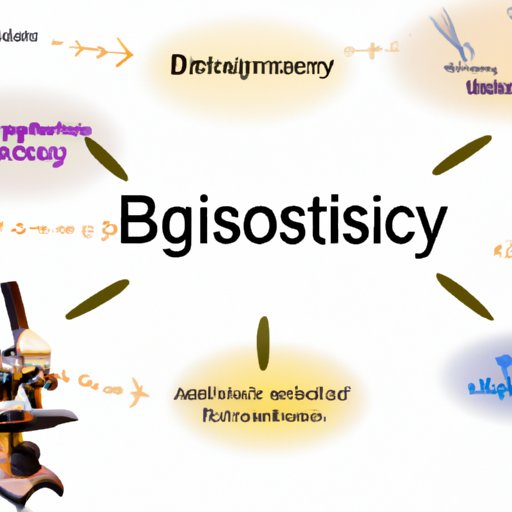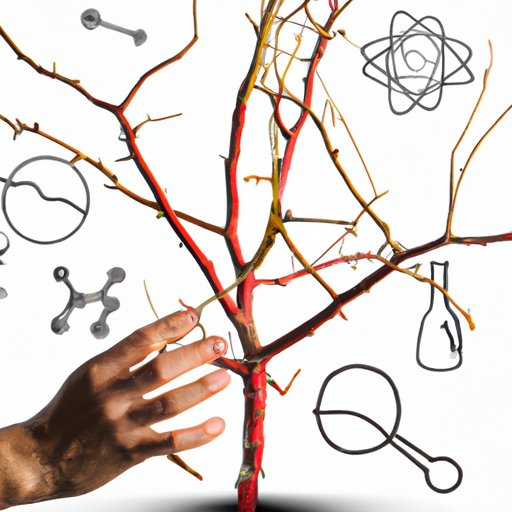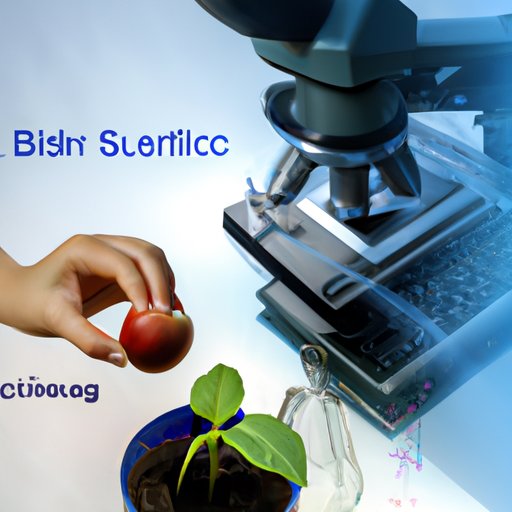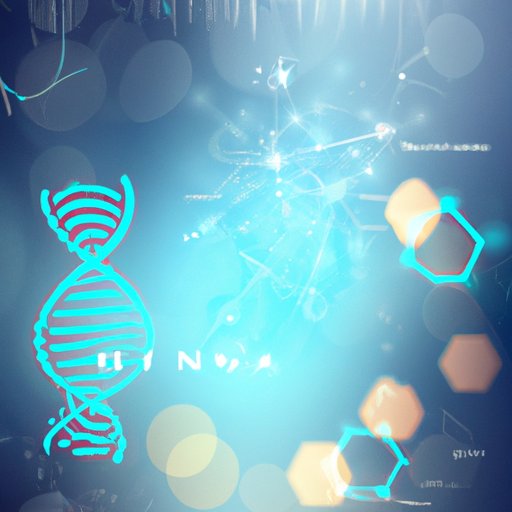Introduction
Biological science is a broad area of study that encompasses multiple disciplines related to living organisms. It covers areas such as molecular biology, genetics, physiology, and evolution. In this article, we’ll explore what biological science is, its history, various branches, intersect with technology, and its role in society.

An Overview of Biological Science
Biological science is an interdisciplinary field that combines elements from the physical and life sciences. It is the study of living systems, from the smallest molecules to entire ecosystems. It can be divided into two main categories: basic biological research and applied biological research.
What is Biological Science?
Biological science is the study of living organisms and their interactions with each other and the environment. It is an interdisciplinary field that combines elements from the physical and life sciences, including chemistry, physics, mathematics, and computer science. It focuses on understanding the structure, function, growth, development, and evolution of living organisms.
Different Fields within Biological Science
Biological science is composed of many different fields, such as molecular biology, genetics, physiology, ecology, and evolution. Molecular biology is the study of the structure and function of molecules in living organisms, while genetics is the study of heredity and variation in living organisms. Physiology is the study of the functioning of living organisms, and ecology is the study of the relationships between living organisms and their environment. Evolution is the study of how living organisms have changed over time.
A History of Biological Science
The study of biology has been around for centuries, but it was not until the 19th century that it began to develop into a modern scientific discipline. The work of early pioneers in the field laid the foundations for the development of biological science as we know it today.
Early Pioneers in the Field
One of the earliest pioneers of biological science was Carolus Linnaeus, a Swedish botanist who developed a system of classifying living organisms. His work was instrumental in establishing the basis for modern taxonomy. Another important figure in the history of biological science was Charles Darwin, who proposed the theory of evolution by natural selection. His work revolutionized the way scientists thought about the origin of species.
Development of Biological Science over Time
In the 20th century, advances in technology enabled scientists to explore biological processes at the molecular level, leading to the emergence of new fields such as molecular biology, genetics, and biochemistry. The development of computers and sophisticated software also had a major impact on biological science, allowing researchers to analyze large datasets and develop complex models. Today, biological science is a rapidly expanding field that continues to make significant contributions to our understanding of the natural world.

Exploring the Branches of Biological Science
Biological science is composed of many different branches, each of which focuses on a specific area of study. Let’s take a closer look at some of these branches.
Molecular Biology
Molecular biology is the study of the structure and function of molecules in living organisms. It involves the use of techniques such as DNA sequencing and gene cloning to understand how genes are expressed and how they interact with each other. Molecular biologists study the genetic code and the proteins it encodes, as well as the biochemical pathways involved in cellular processes.
Genetics
Genetics is the study of heredity and variation in living organisms. It focuses on the transmission of traits from one generation to the next, and on the mechanisms that control the expression of genes. Geneticists use a variety of techniques to study how genes are inherited, how they are expressed, and how they interact with each other.
Physiology
Physiology is the study of the functioning of living organisms. It focuses on understanding how cells, tissues, organs, and organ systems interact to maintain life. Physiologists study the structure and function of the body’s systems, from the molecular level to the whole organism.
Evolution
Evolution is the study of how living organisms have changed over time. It focuses on understanding the mechanisms underlying the origin of species and the diversity of life on Earth. Evolutionary biologists use a variety of techniques to study the evolutionary history of organisms, including genetics, molecular biology, and paleontology.

Investigating the Intersection of Biological Science and Technology
Advances in technology have had a major impact on biological science, enabling researchers to explore complex biological processes at the molecular level. Let’s take a look at how technology is being used in the field.
Advances in Biotechnology
Biotechnology is the application of technology to the study of living organisms. It has made it possible to manipulate genes and produce genetically modified organisms (GMOs). It has also enabled scientists to produce drugs and vaccines more quickly and efficiently. In addition, biotechnology has been used to develop new diagnostic tests and treatments for diseases such as cancer.
Use of Computers in Biological Science
Computers have become an essential tool in biological research. They enable researchers to analyze large datasets and develop complex models of biological processes. Computers are also used to simulate the behavior of biological systems, which can help scientists design experiments and test hypotheses.
The Role of Biological Science in Society
Biological science plays an important role in our lives, from providing us with food and medicine to helping us understand the environment we live in. Let’s take a look at how it impacts our lives.
How Biological Science Impacts our Lives
Biological science has a wide range of applications in our lives, from providing us with food and medicine to helping us understand the environment. For example, advances in biotechnology have enabled scientists to develop new crops that are more resistant to disease and drought, making them more productive and nutritious. In addition, researchers have used genetic engineering to produce drugs and vaccines that can treat or prevent diseases. Finally, biologists have used their knowledge of ecology and evolution to help us understand how human activities are impacting the environment.
Benefits of Biological Science Research
Biological science research has many benefits for society. It has helped us to better understand the causes and treatments of diseases, as well as to develop new crops and medicines. In addition, research in this field has enabled us to protect endangered species and conserve biodiversity. Finally, it has provided us with insights into the origins of life and how species have evolved over time.
Careers in Biological Science
Biological science is a growing field with many job opportunities. Let’s take a look at the education and training required for careers in this field.
Job Opportunities in the Field
There are a variety of career options in biological science, including research positions in universities and private companies, teaching positions in colleges and universities, and consulting positions with government agencies and private companies. Other jobs in the field include laboratory technicians, medical technologists, and environmental scientists.
Education and Training for Biological Science Careers
Most jobs in the field require a bachelor’s degree in biology or a related field. However, some positions may require a master’s degree or higher. In addition, many employers prefer candidates with experience in laboratory work and/or experience in a particular field of biological science. Continuing education and training is also important for those seeking to advance their careers in the field.
Conclusion
Biological science is a broad field of study that encompasses multiple disciplines related to living organisms. It has a long history, stretching back to the work of early pioneers such as Carolus Linnaeus and Charles Darwin. Today, it is composed of many different branches, including molecular biology, genetics, physiology, and evolution. Advances in technology have had a major impact on the field, enabling researchers to explore complex biological processes at the molecular level. Biological science has many applications in our lives, from providing us with food and medicine to helping us understand the environment. There are a variety of job opportunities in the field, and most require a bachelor’s degree in biology or a related field. In conclusion, biological science is a fascinating and ever-evolving field that continues to make significant contributions to our understanding of the natural world.
(Note: Is this article not meeting your expectations? Do you have knowledge or insights to share? Unlock new opportunities and expand your reach by joining our authors team. Click Registration to join us and share your expertise with our readers.)
